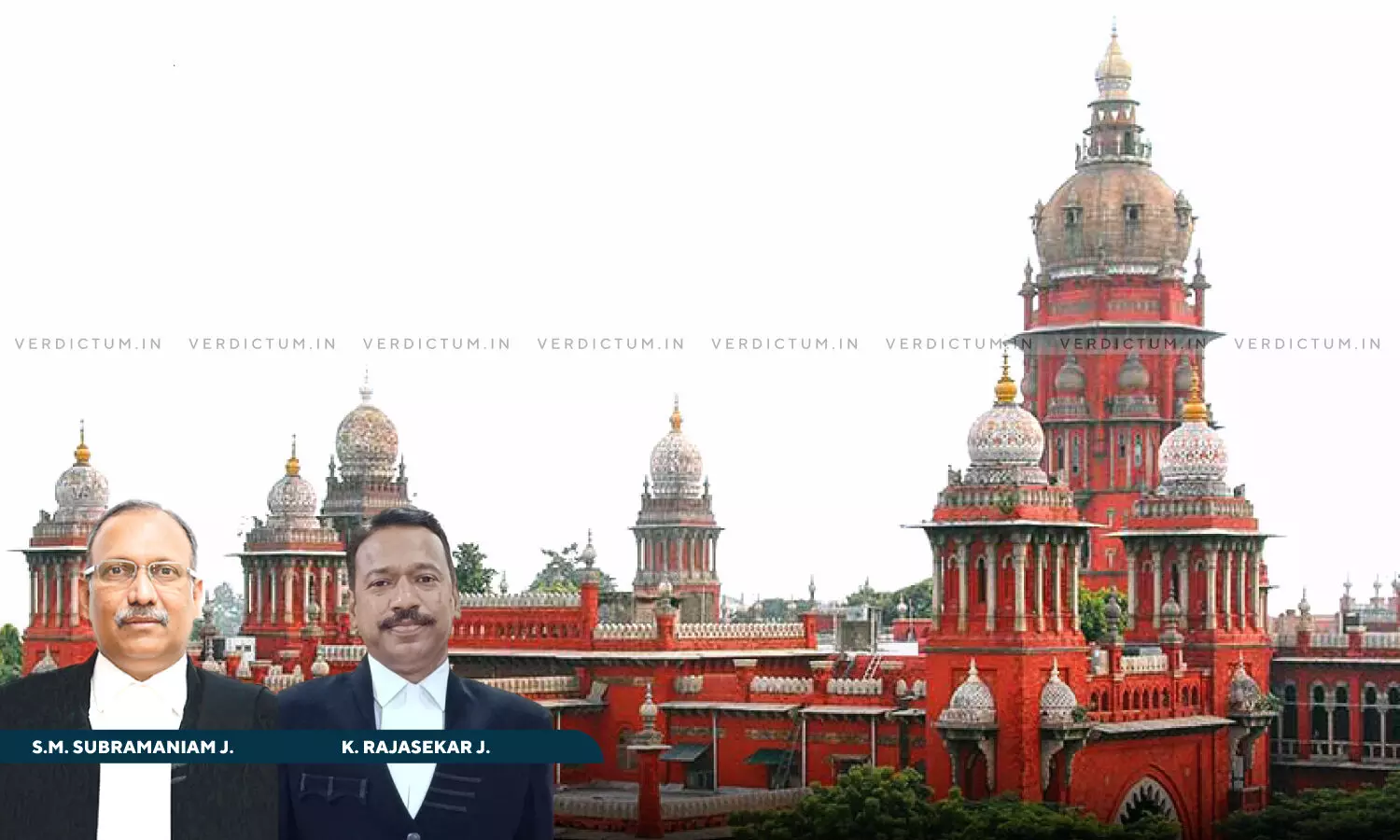
Justice S.M. Subramaniam, Justice K. Rajasekar, Madras High Court
Madras High Court Dismisses Plea Challenging Constitutional Validity Of Section 13 Of Family Courts Act Which Restricts Right Of Legal Practitioners
 |
|The Madras High Court relied upon the Judgment of the Supreme Court in the case of Paradip Port Trust, Paradip v. Their Workmen (1977).
The Madras High Court has dismissed a Writ Petition that sought to declare Section 13 of the Family Courts Act, 1984 (FCA) as unconstitutional.
This provision states that no party to a suit or proceeding before a Family Court shall be entitled, as of right, to be represented by a legal practitioner:
A Division Bench of Justice S.M. Subramaniam and Justice K. Rajasekar held, “In the present case, the stakeholders are husband and wife mostly along with their children or relatives and that being so, the principles settled in Paradip Port Trust case would be more appropriate and there is no scope for taking a different view.”
Advocate Mahesh Kumar S. appeared for the Petitioner while Additional Solicitor General of India (ASGI) A.R.L. Sundaresan appeared for the Respondents.
Contentions
The counsel for the Petitioner contended that Section 13 of FCA infringes the right to practice in Courts contemplated under the provisions of the Advocates Act, 1961. It was further submitted that the right of a legal practitioner is an absolute right under the Advocates Act and therefore any prohibition in this regard is unsustainable. In support of the said contention, it was also submitted that in the absence of lawyers, the litigants in the Family Courts are finding it difficult to defend their cases and thus Section 13 infringing the right of legal practitioners is liable to be declared as unconstitutional.
On the other hand, the ASGI for the Respondents argued that the validity of Section 13 of FCA is no more res integra. It was submitted that since the validity of the said provision has been upheld by the Bombay High Court and two other High Courts, judicial discipline requires that the said Judgments are to be followed in order to avoid any inconsistency in implementing the Central Act. It was further contended that there is no absolute prohibition, since Section 13 read with the Family Courts (Procedure) Rules, 1996 notified by the Madras High Court, more specifically, Rule 41 provides permission for representation by a lawyer and, therefore, there is no absolute prohibition as contended by the Petitioner.
Court’s Observations
The High Court after hearing the arguments from both sides, observed, “… once it is held that classification made by Section 13(1)(a) of the Act is reasonable classification, the same reasoning must hold good as regards Section 13 also. … Section 13 does not create an absolute bar. It is open to the party to make an application to the Family Court under the Family Courts (Procedure) Rules notified by the High Court of Madras. The Family Court may grant permission for engagement of a lawyer to defend the case.”
The Bench relied upon the Judgment of the Supreme Court in the case of Paradip Port Trust, Paradip v. Their Workmen (1977) in which the issue, in a nutshell, was whether the provisions of the Industrial Disputes Act, 1947 dealing with the aspects of representation by either of the parties through a specific lawyer and limitation put thereon, needs to be re-looked. The three Judges' Bench of the Apex Court, while agreeing with the view taken in Paradip Port Trust case, held that the matter is not to be reviewed from the point of view of the legal practitioner but from the aspect of the employer and workmen who are the principal contestants in an industrial dispute, which was taken into consideration in Paradip Port Trust case.
“… no further adjudication with reference to the grounds raised by the petitioner would be required in this case”, it added.
Accordingly, the High Court dismissed the Writ Petition.
Cause Title- Vijaya Vaishnavi Sriram v. Union of India & Ors. (Case Number: W.P.No.33465 of 2024)
Appearance:
Petitioner: Advocate Mahesh Kumar S.
Respondents: ASGI A.R.L. Sundaresan, Deputy SGI R. Rajesh Vivekananthan, Government Advocate G. Ameedius, and Advocate S. Vinod.